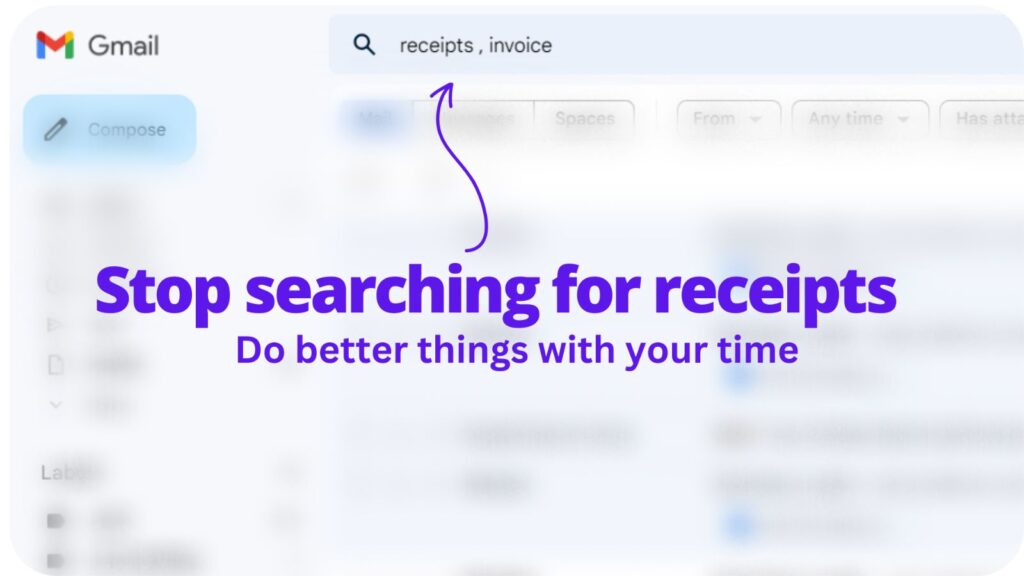With the rapid progression of technology, the accounting sector is undergoing significant transformation. Artificial Intelligence (AI) is at the forefront of this revolution, offering solutions that promise efficiency, accuracy, and significant time savings.
In this article, we’ll delve deep into AI accounting, uncovering secret tips that can help businesses automate their financial tasks and stay ahead in the modern financial landscape.
Understanding the Power of AI Accounting
What is AI Accounting?
Imagine giving a computer the job of managing money. That’s AI accounting. It’s like a super-smart calculator. For instance, businesses need to track money. They check how much they spent and earned, which are called financial statements.
Long ago, people did all this by hand. But, mistakes happened. With AI, this is faster and with fewer mistakes. Above all, it’s like having a helper that never gets tired.
So, instead of typing data, AI looks at the numbers and gives valuable insights. For example, if a toy store wants to know which toy might be popular next Christmas, AI can guess. It does so by studying lots of data.
The Evolution of Accounting Technology
Years ago, people in the accounting industry wrote everything on paper. Then, computers made things easier. They helped with data entry and making reports.
Today, AI doesn’t just store numbers. It thinks about them. It looks at huge amounts of financial data and makes smart suggestions.
A recent development has been the use of ‘ChatGPT for Accountants‘. This technology helps businesses with their financial health and even assists with tricky things like taxes. No one likes making mistakes on tax returns, right? AI, including tools like ChatGPT, ensures that doesn’t happen.
However, every new gadget or idea has its challenges. Using AI in accounting means people need to learn new things. But as with all new technology, practice makes perfect.
Benefits of Integrating AI Accounting into Business
Enhanced Accuracy and Efficiency
In any business, people have to do tasks that can be boring and repetitive. For example, entering data, sorting out invoices, or even checking if they’ve been paid. However, people can make mistakes. This is where AI steps in.
AI is like a superhero. It can do these tasks faster and without making mistakes. Plus, it’s never tired or bored. So, businesses have more accurate financial data and fewer errors. This means fewer headaches and more time for fun things, like planning the company picnic.
Apart from this, AI doesn’t just do tasks. It also thinks about them. If something seems wrong, AI spots it. Like if there’s a bill that’s too high, AI will flag it.
Cost Savings and Scalability
Imagine if you could save your pocket money and still buy the things you want. That’s how AI helps businesses. It saves them money. AI can do the work of many people. This means businesses don’t need to hire more people when they grow. This is known as scalability.
Also, AI can work all the time. So, it’s like having a helper who doesn’t need to sleep or take breaks. And while AI does the routine tasks, people can do more important things. Like making decisions that help the business grow.
AI Accounting Tools and Software Solutions
Top AI Accounting Software in the Market
There are many AI tools for accounting. Some can “read” papers. They use something called optical character recognition. This means they understand numbers and words on papers. They also spot patterns in data. This helps businesses plan and make wise money choices.
Some software helps manage expenses, like tracking your pocket money. They ensure no bills are forgotten and keep an eye out for weird money activities. Other tools focus on bookkeeping. This means they keep money reports tidy and free from mistakes. It’s super important for businesses.
Another cool thing is robotic process automation. Think of it as a robot doing the same job again and again. Jobs like checking bank details. With AI, these jobs are done quicker and without mistakes.
Features to Look For
Picking AI tools for accounting needs thought. The best tools take over the boring jobs. This lets accountants do more fun tasks. They should also help folks understand their money data, sort of like a math tutor.
One top feature is natural language processing. It’s like a computer that chats with you. It answers questions like a person. Keeping financial info safe is also key. Think of it as locking your diary so no one else reads it.
Lastly, predictive analytics is a neat feature. It’s like guessing the weather for tomorrow. This helps businesses plan and stay out of trouble. If a problem might come up, the software gives a warning.
How AI Accounting Transforms Financial Analysis

From Data Entry to Data Insights
In times before AI, entering data was a long task. Many people in accounting would spend a lot of time on this. They worked on things like what was owed by a business and looking at money coming in and out.
With AI, this work is quicker. AI helps reduce doing the same task again and again. This also means fewer mistakes. While people can sometimes get things wrong, machines often get them right.
AI doesn’t just enter data. It helps find important details. It can look at a lot of financial information fast. With this, AI spots trends. These trends can guide smart money choices. For example, AI can help see if spending is good or if a business may earn more later on.
AI also makes tax work simpler. There are many tax rules. AI checks if things are done right. This helps businesses follow these rules. So, there’s less stress about getting things wrong.
Another plus of AI? It’s safe. AI systems have good security. They protect financial data. They can also find bad actions, like lying about money. This is key for every business.
But AI doesn’t take over from people. It gives info, but human thinking is still key. Together, people and AI can improve how money is managed and help businesses do better.
Challenges in Adopting AI Accounting Practices
Transition and Training Challenges
Think of AI in accounting like a new toy. Not everyone knows how to play with it right away. The accounting industry is full of pros. They’ve done data entry by hand for years. That’s called manual data entry.
But now, there’s a new tool in town. It’s called artificial intelligence or AI. And, like any new toy, it can be tricky to learn.
Accounting professionals might feel lost at first. They might ask, “How does this work?” After all, changing from old ways to new can be tough. Just like when you switch from riding a tricycle to a bicycle. There’s a balance to find.
But, with training, things get easier. However, it’s key to remember that mistakes can happen. Especially with important stuff like financial data. So, patience is crucial. Over time, things get smoother. But the start? It can be a rocky road.
Data Security and Compliance
Imagine your piggy bank. You want to keep it safe, right? In the big world of business accounting, financial data is like that piggy bank. Businesses want to keep their data safe. They don’t want anyone taking their coins.
AI tools can be like a lock for that bank. But, using them can be tricky. One big worry is safety. It’s like asking, “Is my lock strong enough?”
Also, there are rules in accounting. Just like in a game of Monopoly. These rules are called regulatory compliance. AI tools need to know these rules. They must play the game right.
If not, there could be trouble. It’s like landing on ‘Go to Jail’ without a ‘Get Out of Jail Free’ card. Picking the right AI tools is important. It ensures the game is played fairly. And that the piggy bank stays safe.
AI Accounting and the Future of Finance Jobs
Will AI Replace Accountants?
AI in accounting is like a new game level. It’s faster and smarter. Some wonder, “Will robots replace accountants?” But AI doesn’t replace accountants. It helps them. Think about cars. Did they replace horses? No. Just like that, AI is a helper, not a replacer.
AI can handle repetitive tasks. Like data entry. But humans still make big financial decisions. AI reduces mistakes. It lets accountants focus on bigger things. In short, AI is a friend, not a foe.
Emerging Roles in the AI-Driven Accounting World
With AI, new accounting jobs appear. Just like the internet brought new roles. AI does the same.
There’s the AI trainer. They teach AI to understand financial documents. Also, help with risk management, watch for potential risks. They ensure AI tools work right.
Then, there’s the AI Ethics Monitor. It makes sure AI is fair. Think of them as game referees. They watch for rule-breaking and focus on ethical considerations.
Data experts are crucial too. They look into numbers and find patterns. Also, they help businesses make smart choices. They focus on cash flow and financial planning. With their insights, businesses grow.
Practical Tips to Implement AI Accounting in Your Organization

Assessing Your Business Needs
Before using AI, you should know what you need. Think about it like shopping. You don’t buy things you don’t need, right?
For AI in accounting, the first step is to look at your business. Ask some questions. For instance, “Where do I spend too much time?” Or, “Which tasks are boring and repetitive?”
Many accounting professionals spend hours on data entry. If that’s true for you, AI can help. It can handle repetitive tasks. This means fewer mistakes from human error. And, you get more free time.
Another important thing is financial reporting. Every business needs it. It tells you how your money is doing. But it’s a big task. AI can help there too. It can look at vast amounts of numbers and give valuable insights.
Finding the Right AI Solution
There are many AI tools out there. But, like shoes, not every size fits everyone. Therefore, you need to find the right one for you.
Start by looking at AI-powered systems. These are like magic wands for accounting tasks. They can automate repetitive tasks. For example, they can handle invoice processing. That means less human labor.
They also make sure everything matches. Like bank reconciliation. This is making sure your records match with the bank’s.
But, however, it’s not just about picking the fanciest tool. Think about your needs. Some businesses have a lot of invoices. Others deal with late payments. Some might worry about fraudulent activities. So, you should choose the tool that helps with your biggest challenges.
Also, ask other accounting professionals. They can tell you what works for them. They can give deeper understanding. And remember, AI is like a new friend. Take your time to know it. Test it out. And train it to work for you.
FAQs About AI Accounting
Can AI completely replace human accountants?
AI has proven to be a game-changer in automating repetitive accounting tasks. Yet, human expertise and judgment still hold crucial roles. AI complements human accountants, freeing them up for higher value tasks such as strategic financial management.
How does AI improve the accuracy of financial reporting?
AI systems can analyze vast amounts of data with precision, reducing human error. They can detect discrepancies and potential fraud, enhancing the accuracy of financial reports.
Can AI help in tax compliance?
Yes, AI can play a vital role in ensuring tax compliance. It can process and analyze tax documents efficiently and accurately, identifying any non-compliance and suggesting remedies accordingly.
How does AI contribute to cost savings?
By automating labor-intensive bookkeeping processes and data entry tasks, AI reduces the need for additional hires, saving on staffing costs. Plus, it works round the clock, boosting productivity.
Conclusion
In today’s world, AI has undeniably transformed accounting processes. It offers a pathway for businesses to automate their workflow, streamline processes, and make informed decisions based on robust data analysis.
Moreover, it aids in crucial areas like tax compliance and fraud detection, making the financial operations more secure and efficient.
However, AI isn’t without challenges. Data security and compliance are paramount, and adopting AI requires both financial and human investment. Training professionals to leverage AI technology effectively is vital, and maintaining robust security measures is a must.
While AI holds great promise, it isn’t a substitute for human judgment and expertise. Rather, it’s a powerful tool that accountants can leverage to focus on strategic financial strategies and provide valuable insights to businesses.
In a world where financial managers are increasingly pressured to deliver more with less, AI could be the secret weapon in their arsenal. One of the ways to tap into the potential of AI for accounting is through “Financial Tips with ChatGPT“. This allows businesses to gain insights, optimize their finance management, and stay updated with the latest trends.
It’s clear that AI is a game-changer. But it’s not a threat. Instead, it’s an opportunity. It allows everyone to learn, grow, and be better. After all, with AI’s help, the sky’s the limit.

Collect receipts from your email automatically!
Try WellyBox - your AI assistant for receipts


